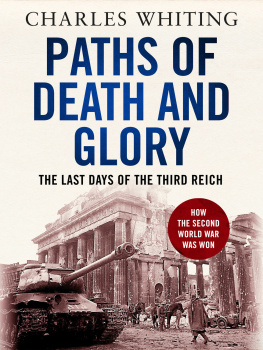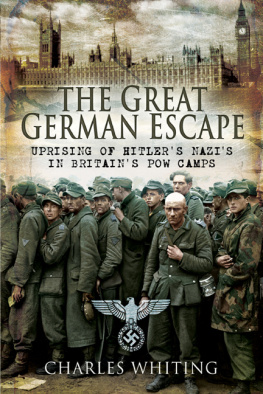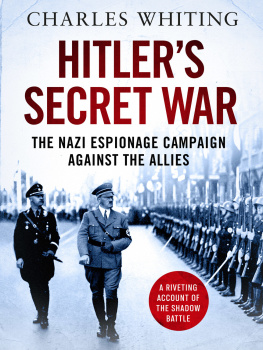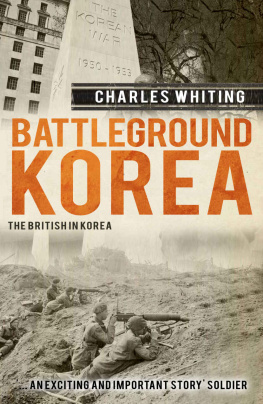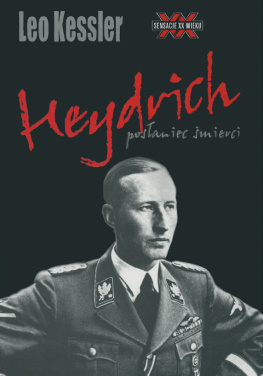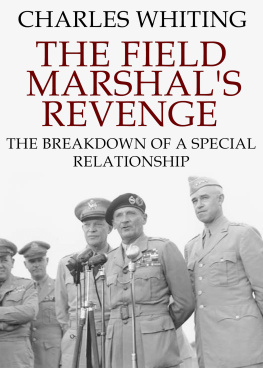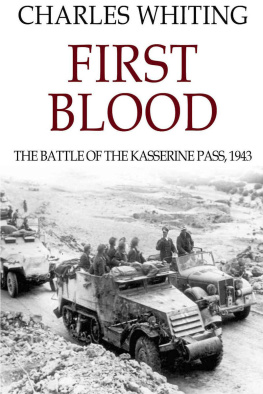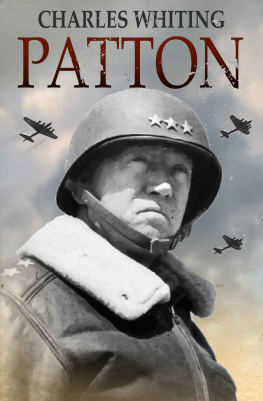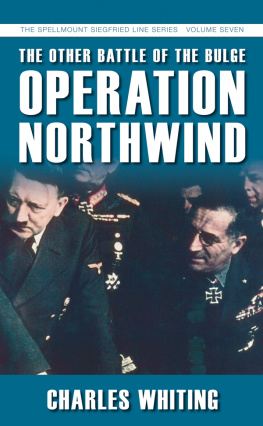Paths of Death and Glory
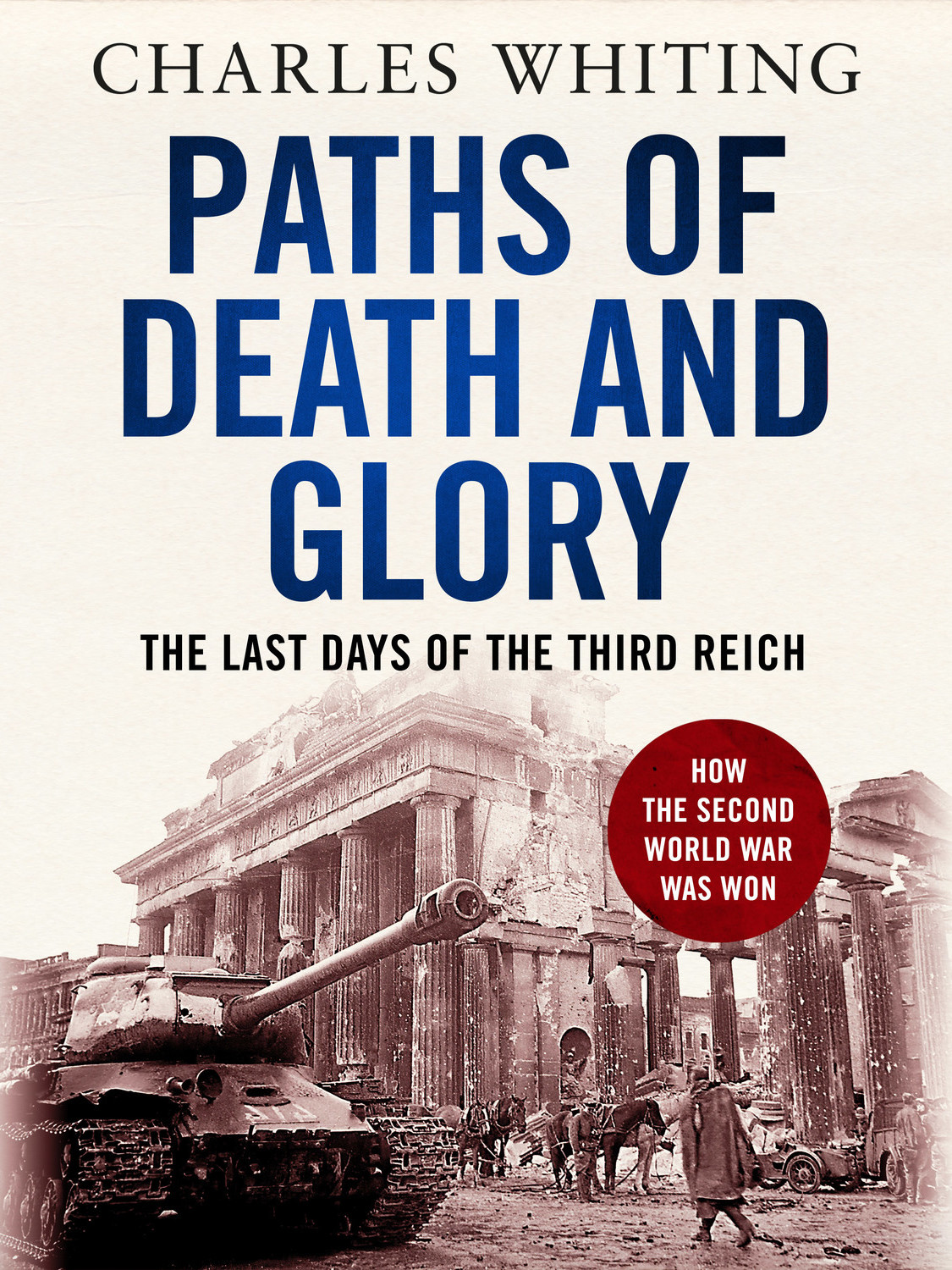
Epigraph
The world must know that this State will, therefore, never capitulate.
Adolf Hitler, 1 January 1945
Preface
We heard them before we saw them. The stamp of marching boots down the dusty German road and the hundreds of voices singing lustily. What they sang fifty years ago escapes me now. Perhaps it was Oh, du schoner Westerwald or some such harmless folksong. Now Germany was finished and they were marching into captivity; they wouldnt want to rile us, the victors. The defiant U-boat men turned infantry, wed taken the week before, had still sung that provocative Wir fahren gegen England as they had been marched off to the cages. This lot knew they had lost; that there was no hope for Germany now.
What theyre singing for? Big Slack (Arse) asked in that naive fashion of his. Theyve nowt to sing about.
Jerries allus fooking sing, his fellow Geordie, Little Slack, answered scornfully. Cos Jerries have nae fooking sense. Thats fooking why.
Oh ay, Big Slack said, as if his mates answer explained everything.
At the crossroads waiting for them, Big Tam, the major, stiffened, the ribbons of his balmoral fluttering in the breeze. Slowly he raised his hand to his bonnet in salute. Then they were there. The officers of the Grossdeutschland Division, coming to surrender.
They were hard, stern men, all of them. Their elegant tunics were covered in the decorations of six years of war: Iron Cross, German Cross in Gold, Silver Wound Medal and all the rest of the tin, as they called their medals. These were the men who Hitler had sent out to conquer Europe in 1939 and they had done so. They had been bold, brave and resourceful. Now they were beaten at last, their world shattered. Stiffly they marched past the major and the rest of us, their eyes not seeming to see us.
Behind them came the rank and file. They sang now no more. Nor did they march. Instead, they shuffled along the dusty road. A lot of them were kids like we were. Some by our standards were very old. They could have been our grandfathers. But all of them were scruffy and shabby in long grey overcoats of cheap material, which flapped about their ankles. Probably theyd be lousy, too, we thought. German prisoners usually were. Unlike their officers they were curious. They stared with interest at their captors. Some even attempted a cautious smile. They were POWs now admittedly, but at least we werent the feared Ivans, as they called the Russians. With us, they knew, theyd get fairly decent treatment. We were the Tommies, who might loot their wallets and wrist-watches, but that would be about it.
So they marched by us in their hundreds on the way to the cages. Big Tam said: Now dont let any of them slip away, chaps. When hed gone, Little Slack said contemptuously: Dont let em fooking slip away! They can all fooking sling their hook as far as Im concerned. He tapped his fat chest, as usual covered by a dirty khaki pullover: Me, Ive seen enough fooking Jerries to last me a fooking lifetime.
We all had. All our young lives seemed to have been dominated by the Jerries. Our fathers and grandfathers had told us about them in the trenches. The maimed, crippled shell-shocked victims of that Great War had been all around us as kids. Then had come Hitler. Thereafter, every new year had brought a new crisis. Even the thickest of us had known as kids that war with Germany would be inevitable.
It is the German century, our history master had pontificated at school, at least as far as the Continent is concerned. The Germans dominate Europe militarily, economically and politically. Broadly speaking, the Germans will determine what happens to the rest of us.
I told myself on that May day that my history teacher had been proved wrong. Germany had been soundly beaten. Its cities were in ruins and Germany itself had been a battlefield for nearly six months. This time the Germans couldnt complain they had lost the war not in battle but by treachery at home, as they had done after the first war. This time they had seen their army defeated in their own country. No, it definitely wasnt to be Germanys century.
In the event, I was wrong and my history teacher right. But that is another matter. On that warm May day half a century ago, we Americans, Britons, Canadians and soldiers of a dozen different allied nations who had taken part in the campaign knew we had beaten the Germans.
Back in September 1944 when the Allies first reached Germanys frontiers, most commentators thought the war would be over by Christmas. That had not been the case. Many of those who reached the borders of the Reich that September did not survive into 1945 when a new and bitterly fought campaign commenced the hard slog right across that Third Reich, which Hitler had boasted would last a thousand years. Allied soldiers fought battles through Hitlers Reich from the shores of the Baltic in the north to the Brenner Pass in the south-east. Virtually every great German city, save Hamburg, had to be fought for and it was only when that evil genius, Hitler, was dead that the real mass surrenders commenced.
The cost was high. In the last six weeks alone, Montgomery lost 30,000 men and 2,000 tanks as his armies headed for the Baltic. American losses in their drive towards Italy and Austria were just as high. Almost to the very last the Germans defended their beaten country with savage ferocity. This story is about the men and women who fought those last battles in Europe; how they lived, how they died. It was their blood, sweat and tears that made victory in Europe possible. That great Tuesday, 8 May 1945, which would go down in history as VE Day.
C.W. Bleialf, Germany
York, England
Spring 1997
We sail against England.
January
We can still lose this war.
General George Patton, 4 January 1945
I
Five minutes to midnight. 31 December 1944. On that freezing Sunday night in Alsace, two young officers, Lieutenants George Bradshaw and Richard Shattuck decided that someone in the US 44th Infantry Divisions Fox Company should celebrate the advent of 1945. Despite the cold and the snow, the two young and high-spirited officers clambered out of their foxholes to wait for the new year.
For nearly two days now the relatively green 44th Division had been dug in between the French industrial towns of Sarreguemines and Rimling at the extreme left of the US Seventh Armys long front in France. Tension had been rising all that time. The GIs had not been told officially that there was a flap on. But they knew from their contacts with local civilians and by the anxious looks on the faces of visiting staff officers that, as they phrased it in their own crude jargon, soon the shit is gonna hit the fan. Why else should they have to stand to virtually every night? Why should they have double the normal number of men in the line? No, the men of the 44th Infantry knew instinctively that the Top Brass in the head shed was expecting some sort of German attack.
Unabashed by what might come, the two young officers stood in the moonlit snow. They raised their carbines ready to fire a feu de joie at the stroke of midnight, while in their holes the doughboys grinned at the crazy antics of the two shavetail lieutenants.
Two minutes to go! Bradshaw called to Shattuck. He clicked off his safety catch and began to count off the seconds to 1945.

